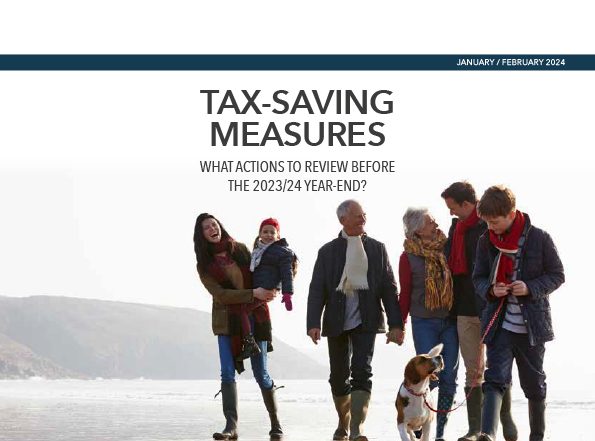Applying for a mortgage requires careful research and planning. You’ll need to understand the different types of mortgage loans available, how much deposit to put down and whether your credit rating is good enough to support an application. Don’t be put off by the common misconceptions around mortgages that so many first-time buyers think about.
Obtaining professional assistance helps you access the best mortgage deals. It can also prevent you from taking on repayments that are too high, an issue that puts your home at risk of repossession. Grosvenor Wealth Management’s Mortgage Adviser, Alan Ramsden, shares his insights to help point you in the right direction and get you on the first or even the next step of the property ladder.

Finding the right mortgage
There are two main types of mortgage:
- Fixed rate – the interest rate is fixed for a pre-determined length of time, usually between 2-5 years. A fixed-rate mortgage can be a good option and will help you budget each month if you need to be certain of your monthly repayment amount. It does typically tie an individual into the deal rate period, therefore, if interest rates do fall, you continue to pay the fixed rate. An early repayment charge may be payable in order to exit your current fixed rate and find a new rate.
- Variable rate – the rate of interest will rise and fall in line with the Bank of England Base Rate and the rates offered by your mortgage provider. Depending on this, your monthly repayment amount could change. There are different types of variable rate options, including ‘trackers’, discounted rate and standard variable rate mortgages.
If you’re a first-time buyer, you may be able to take advantage of one of the government schemes designed to help you onto the property ladder.
Schemes for first time home buyers
Help to Buy is one of the few government initiatives designed to help first time home buyers. There are a number of options available under the Help to Buy scheme, you can find out more about it here.
The Mortgage Guarantee Scheme is another government plan to help get more first-time buyers onto the property ladder. The scheme is open to new 95% mortgages until 31 December 2022, with participating lenders offering 95% mortgages under the government guarantee from 19 April 2021. This will increase the availability of 95% Loan-to-value mortgage products, enabling more households to access mortgages without the need for prohibitively large deposits.
A guarantor mortgage may also be an option. This involves a third party, usually a parent, who takes legal responsibility for repayments if you default. Although you will still need to consider how much to borrow.
Applying for a mortgage – how much can I borrow?
When you apply for a mortgage, the lender will carry out checks on various aspects of your financial life, including:
- Your credit file
- How much you earn
- Your regular expenditure
- Outstanding debts
Each financial institution has its own lending criteria, but the main basis for calculating how much money you can borrow is your income and expenditure. The information in your credit file is also used to judge the lender’s level of risk.
It’s a good idea to obtain a mortgage approval in principle, once the lender has carried out an initial assessment of your finances. This will speed up the buying process when you find a property that you like and presents you as a safer option for sellers.
Remortgaging your home
Sometimes a remortgage can be a good idea if you need to raise capital, or to secure a better deal with a new mortgage. However, you should check the terms of your existing mortgage for an early repayment charge, as this might affect whether remortgaging is worthwhile.
If you would like to find out more about obtaining a mortgage, whether you’re a first-time buyer or looking to find a better deal, we can provide the professional guidance you need. Find out more about our mortgage advice service, and get in touch with us to discuss your options.
Protecting your home
It’s important to consider protection when taking out your mortgage, as this could provide financial stability should your circumstances change. However, it’s also important to remember that taking out a protection plan will not necessarily prevent repossession of your home. To learn more about our protection planning service get in touch to speak to an independent financial adviser.
Grosvenor Wealth Management’s independent mortgage advice service ensures your mortgage requirements are fully met. Whether you are looking to purchase, re-mortgage or buy an investment property, we are confident we can secure the right arrangement for you.
Your mortgage is a loan secured against your property. Your home may be repossessed if you do not keep up repayments on a mortgage or other loans secured on it.
Talk to us
To find out more about our life financial planning approach contact us using the form.
‘TIME IN THE MARKET’, NOT ‘TIMING THE MARKET’
In the investing world, the allure of quick profits and instant gratification often tempts some [...]
Smart Money January/February 2024
TAX-SAVING MEASURES WHAT ACTIONS TO REVIEW BEFORE THE 2023/24 YEAR-END? Welcome to the January/February 2024 [...]
Should I combine my pensions into one pot?
Combining your pensions could help you save money and keep track of your finances more [...]
A crucial decade: in your 50s
Maximising your earnings or laying down a robust financial plan As you sail into [...]
High costs of private education
The significant decision of choosing a private school for children Choosing the right educational [...]
STRATEGIES TO MINIMISE RETIREMENT TAX
Many pensioners may face a potential tax pitfall as the State Pension escalates and [...]







